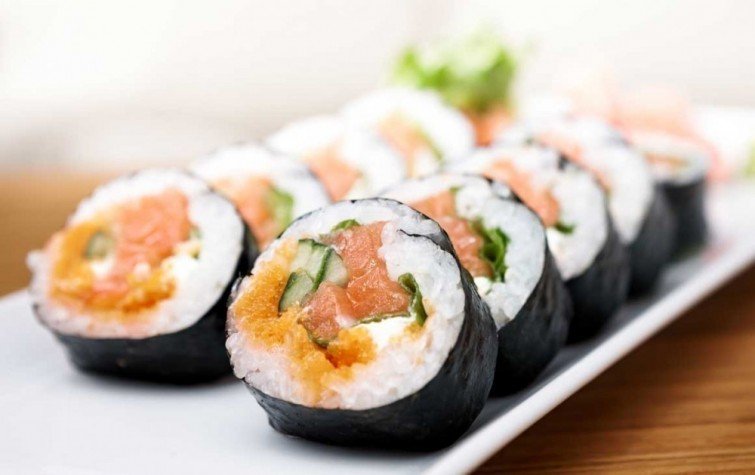Many people who do not have vegan or vegetarian diets usually eat fish in their meals. There are doctors and nutritionists who, in fact, recommend it in diets for its nutritional value, as it provides vitamins and minerals, such as A and D, selenium, magnesium, phosphorus and iodine. Even so, and at an environmental level, consuming fish implies fostering a cruel and polluting industry.
Also, fish may not always be the healthiest option.
This happens, for example, with tuna, anchovies, ceviche and also with sushi, which has gained so much popularity around the world. The latter has been associated with an increase in parasitic infections, since many of its pieces contain raw fish.
What is the risk?
That the fish (usually: cod, sardine, anchovy, herring, salmon, haddock, hake, whiting, mackerel, bonito, jack mackerel, and squid) is contaminated with a type of parasitic worm of the Anisakis genus, transparent, which it lodges in the digestive tract of live fish and, when they die, their larvae migrate to the viscera and musculature, and can cause what is known as "anisakiasis".
This is a disease generated from the consumption of these live larvae, whether in raw fish, smoked, salted, in vinegar, marinated or undercooked. These larvae affect the gastrointestinal tract, can become entangled and produce inflammation. In more serious cases, they can also migrate to other tissues and organs.
The country with the most cases of contamination is Japan, with more than 90% of the cases.

What are the symptoms?
Especially, severe abdominal pain, nausea, vomiting and diarrhea; and other symptoms may also appear, such as severe allergic reactions, digestive bleeding, intestinal obstruction and peritonitis.
Which is the treatment?
As no drug treatment can eliminate the larvae, if they are lodged in the intestine it may be necessary to remove the worm by surgery or endoscopy.
How to prevent it?
· If you can, avoid the intake of raw or undercooked fish, including vinegar, smoked, marinated, etc.
· If you are going to eat raw or lightly cooked fish, to ensure that you eliminate the possible live larvae, freeze it at a temperature of -20ºC or less, for at least 24 hours before consuming it. The other alternative is to remove it by heat, cooking it at a temperature between 60-70 ° C for at least 10 minutes.
· Keep in mind that vinegars, marinated or ceviches are not a sufficient treatment to eliminate the parasite.
Reference:
The Guardian
Revista Sana
OCU
